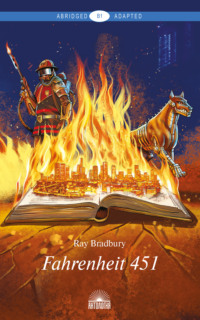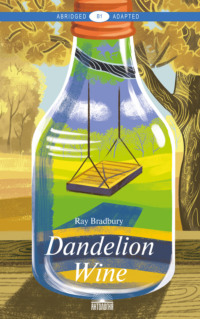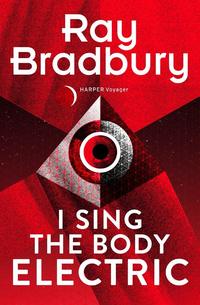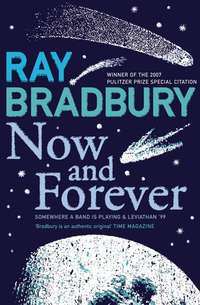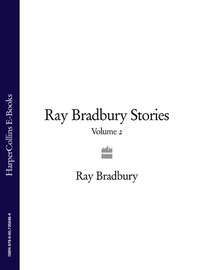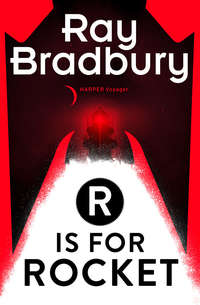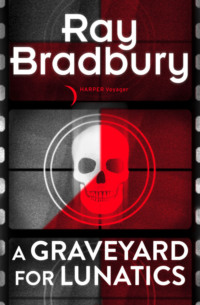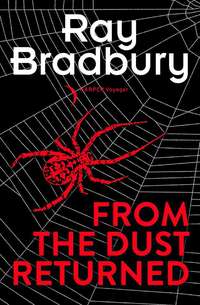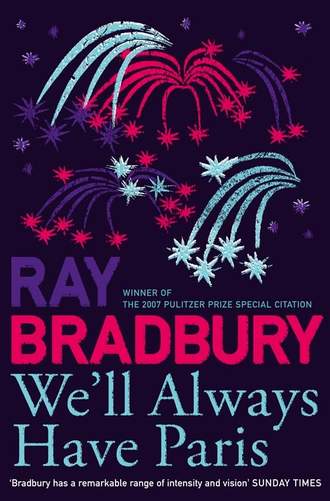
Полная версия
We’ll Always Have Paris
‘Yes, you do,’ he said.
‘Not really, I don’t. It’s all so strange and sad and terrible and at the same time, I don’t know, God’s gift. Does that make any sense?’
‘To me it does. I’m alive because of the gift.’
Now it was his turn to fall silent, pour himself coffee, stir it and drink.
‘When you leave here,’ said the young man, ‘where will you go?’
‘Go?’ said the woman uncertainly.
‘I mean—’ The young man winced with his own lack of ease. The words simply would not come. ‘I mean, have you other visits to make? Are there other—’
‘I see.’ The woman nodded several times, took hold of herself with a motion of her body, looking at her hands in her lap, and at last shrugged. ‘Yes, there are others. My son, his vision was given to someone in Oregon. There is someone else in Tucson—’
‘You don’t have to continue,’ said the young man. ‘I shouldn’t have asked.’
‘No, no. It is all so strange, so ridiculous. It is all so new. Just a few years ago, nothing like this could have happened. Now we’re in a new time. I don’t know whether to laugh or cry. Sometimes I start one and then do the other. I wake up confused. I often wonder if he is confused. But that’s even sillier. He is nowhere.’
‘He is somewhere,’ said the young man. ‘He is here. And I’m alive because he is here at this very moment.’ The woman’s eyes grew very bright, but no tears fell.
‘Yes. Thank you for that.’
‘No, I thank him, and you for allowing me to live.’
The woman jumped up suddenly, as if propelled by an emotion stronger than she knew. She looked around for the perfectly obvious door and seemed not to see it.
‘Where are you going?’
‘I—’ she said.
‘You just got here!’
‘This is stupid!’ she cried. ‘Embarrassing. I’m putting too much of a burden on you, on myself. I’m going now before it all gets so ludicrous I go mad—’
‘Stay,’ said the young man.
Obedient to the command, she almost sat down.
‘Finish your coffee.’
She remained standing, but picked up her coffee cup with shaking hands. The soft rattle of the cup was the only sound for a time as she slaked the coffee with some unquenchable thirst. Then she put the empty cup down and said: ‘I really must go. I feel faint. I feel I might fall down. I am so embarrassed with myself, with coming here. God bless you, young man, and may you have a long life.’
She started toward the door, but he stood in her way.
‘Do what you came to do,’ he said.
‘What, what?’
‘You know. You know very well. I won’t mind it. Do it.’
‘I—’
‘Go on,’ he said gently, and shut his eyes, his hands at his side, waiting.
She stared into his face and then at his chest, where under his shirt there seemed the gentlest stirring.
‘Now,’ he said quietly.
She almost moved.
‘Now,’ he said, for a final time.
She took one step forward. She turned her head and quietly moved her right ear down and then again down, inch by inch, until it touched the young man’s chest.
She might have cried out, but did not. She might have exclaimed something, but did not. Her eyes were also shut now and she was listening. Her lips moved, saying something, perhaps a name, over and over, almost to the rhythm of the pulse she heard under the shirt, under the flesh, within the body of the patient young man.
The heart was beating there.
She listened.
The heart beat with a steady and regular sound.
She listened for a long while. Her breath slowly drained out of her, as color came into her cheeks.
She listened.
The heart beat.
Then she raised her head, looked at the young man’s face for a final time, and very swiftly touched her lips to his cheek, turned, and hurried across the room, with no thanks, for none was needed. At the door she did not even turn around but opened it and went out and closed the door softly.
The young man waited for a long moment. His right hand came up and slid across his shirt, across his chest to feel what lay underneath. His eyes were still shut and his face emotionless.
Then he turned and sat down without looking where he sat and picked up his coffee cup to finish his coffee.
The strong pulse, the great vibration of the life within his chest, traveled along his arm and into the cup and caused it to pulse in a steady rhythm, unending, as he placed it against his lips, and drank the coffee as if it were a medicine, a gift, that would refill the cup again and again through more days than he could possibly guess or see. He drained the cup.
Only then did he open his eyes and see that the room was empty.
The Twilight Greens
It was getting late, but he thought there was just enough sunlight left that he could play a quick nine holes before he had to stop.
But even as he drove toward the golf course twilight came. A high fog had drifted in from the ocean, erasing the light.
He was about to turn away when something caught his eye.
Gazing out at the far meadows, he saw a half dozen or so golfers playing in the shadowed fields.
The players were not in foursomes, but walked singly, carrying their clubs across the grass, moving under the trees.
How strange, he thought. And, instead of leaving, he drove into the lot behind the clubhouse and got out.
Something made him go stand and watch a few men at the driving range, clubbing the golf balls to send them sailing out into the twilight.
But still those lone strollers far out on the fairway made him immensely curious; there was a certain melancholy to the scene.
Almost without thinking, he picked up his bag and carried his golf clubs out to the first tee, where three old men stood as if waiting for him.
Old men, he thought. Well no, not exactly old, but he was only thirty and they were well on into turning gray.
When he arrived they gazed at his suntanned face and his sharp clear eyes.
One of the aging men said hello.
‘What’s going on?’ said the young man, though he wondered why he asked it that way.
He studied the fields and the single golfers moving away in the shadows.
‘I mean,’ he said, nodding toward the fairway, ‘you’d think they’d be heading in. In ten minutes they won’t be able to see.’
‘They’ll see, all right,’ said one of the older men. ‘Fact is, we’re going out. We like the late hour, it’s a chance to be alone and think about things. So we’ll start off in a group and then go our separate ways.’
‘That’s a hell of a thing to do,’ said the young man.
‘So it is,’ said the other. ‘But we have our reasons. Come along if you want, but when we’re out about a hundred yards, you’ll most likely find yourself alone.’
The young man thought about it and nodded.
‘It’s a deal,’ he said.
One by one they stepped up to the tee and swung their clubs and watched the white golf balls vanish into the half dark.
They walked out into the last light, quietly.
The old man walked with the young man, occasionally glancing over at him. The other two men only looked ahead and said nothing. When they stopped the young man gasped. The old man said, ‘What?’
The young man exclaimed, ‘My God, I found it! How come, in this lousy light, I somehow knew where it would be?’
‘Those things happen,’ said the old man. ‘You could call it fate, or luck, or Zen. I call it simple, pure need. Go ahead.’
The young man looked down at his golf ball lying on the grass and stepped back quietly.
‘No, the others first,’ he said.
The other two men had also found their white golf balls lying in the grass and now took turns. One swung and hit and walked off alone. The other swung and hit and then he, too, vanished in the twilight.
The young man watched them going their separate ways.
‘I don’t understand,’ he said. ‘I’ve never played in a foursome like this.’
‘It’s really not a foursome,’ said the old man. ‘You might call it a variation. They’ll go on and we’ll all meet again at the nineteenth green. Your turn.’
The young man hit and the ball sailed off into the purple-gray sky. He could almost hear it hit the grass a hundred yards out.
‘Go on,’ said the old man.
‘No,’ said the young man. ‘If you don’t mind, I’ll walk with you.’
The old man nodded, positioned himself, and hit his golf ball into the dark. Then they walked on together in silence.
At last the young man, staring ahead, trying to figure the beginning night, said, ‘I’ve never seen a game played this way. Who are those others and what are they doing here? For that matter, who are you? And finally, I wonder, what in hell am I doing here? I don’t fit.’
‘Not quite,’ said the old man. ‘But perhaps someday you will.’
‘Someday?’ said the young man. ‘If I don’t fit now, why not?’
The old man kept walking, looking ahead, but not over at the younger man.
‘You’re much too young,’ he said. ‘How old are you?’
‘Thirty,’ said the young man.
‘That’s young. Wait until you’re fifty or sixty. Then maybe you’ll be ready to play the Twilight Greens.’
‘Is that what you call it, the Twilight Greens?’
‘Yes,’ said the old man. ‘Sometimes fellows like us go out and play really late, don’t come in till seven or eight o’clock; we have that need to just hit the ball and walk and hit again, then head in when we’re really tired.’
‘How do you know,’ said the young man, ‘when you’re ready to play the Twilight Greens?’
‘Well,’ said the old man, walking quietly, ‘we’re widowers. Not the usual kind. Everyone has heard of golf widows, women who are left at home when their husbands play golf all day Sunday, sometimes on Saturday, sometimes during the week; they get so caught up in it that they can’t quit. They become golfing machines and the wives wonder where in hell their husbands went. Well, in this case, we call ourselves the widowers; the wives are still at home, but the homes are cold, nobody lights a fire, meals are cooked, though not very often, and the beds are half empty. The widowers.’
The young man said, ‘Widowers? I still don’t quite understand. Nobody’s dead, are they?’
‘No,’ the old man said. ‘When you say “golf widows,” it means women left at home when men go out to play golf. In this case, “widowers” means men who have in fact widowed themselves from their homes.’
The young man mused for a moment and then said, ‘But there are people at home? There is a woman in each house, yes?’
‘Oh yes,’ said the old man. ‘They are there. They are there. But …’
‘But what?’ said the young man.
‘Well, look at it this way,’ said the old man, still walking quietly and looking off into the Twilight Greens. ‘For whatever reason, we come here at twilight, onto the fairway. Maybe because at home there is too little talk, or too much. Too much pillow talk, or too little. Too many children, or not enough children, or no children at all. All sorts of excuses. Too much money, not enough. Whatever the reason, all of a sudden these loners here have discovered that a good place to be as the sun goes down is out on the fairway, playing alone, hitting the ball, and following it into the fading light.’
‘I see,’ said the young man.
‘I’m not quite sure that you do.’
‘No,’ said the young man, ‘I do indeed, I do indeed. But I don’t think I’ll ever come back here again at twilight.’
The old man looked at him and nodded.
‘No, I don’t think you will. Not for a while, anyway. Maybe in twenty or thirty years. You’ve got too good a suntan and you walk too quickly and you look like you’re all revved up. From now on you should arrive here at noon and play with a real foursome. You shouldn’t be out here, walking on the Twilight Greens.’
‘I’ll never come back at night,’ said the young man. ‘It will never happen to me.’
‘I hope not,’ said the old man.
‘I’ll make sure of it,’ said the young man. ‘I think I’ve walked as far as I need to walk. I think that last hit put my ball too far out in the dark; I don’t think I want to find it.’
‘Well said,’ said the old man.
And they walked back and the night was really gathering now and they couldn’t hear their footsteps in the grass.
Behind them the lone strollers still moved, some in, some out, along the far greens.
When they reached the clubhouse, the young man looked at the old, who seemed very old indeed, and the old man looked at the young, who looked very young indeed.
‘If you do come back,’ said the old man, ‘at twilight, that is, if you ever feel the need to play a round starting out with three others and winding up alone, there’s one thing I’ve got to warn you about.’
‘What’s that?’ said the young man.
‘There is one word you must never use when you converse with all those people who wander out along the evening grass prairie.’
‘And the word is?’ said the young man.
‘Marriage,’ whispered the old man.
He shook the young man’s hand, took his bag of clubs, and walked away.
Far out, on the Twilight Greens, it now was true dark, and you could not see the men who still played there.
The young man with his suntanned face and clear, bright eyes turned, walked to his car, and drove away.
The Murder
‘There are some people who would never commit a murder,’ said Mr Bentley.
‘Who, for instance?’ said Mr Hill.
‘Me, for instance, and lots more like me,’ said Mr Bentley.
‘Poppycock!’ said Mr Hill.
‘Poppycock?’
‘You heard what I said. Everybody’s capable of murder. Even you.’
‘I haven’t a motive in the world, I’m content with things, my wife is a good woman, I’ve got enough money, a good job, why should I commit murder?’ said Mr Bentley.
‘I could make you commit murder,’ said Mr Hill.
‘You could not.’
‘I could.’ Mr Hill looked out over the small green summer town, meditatively.
‘You can’t make a murderer out of a nonmurderer.’
‘Yes, I could.’
‘No, you couldn’t!’
‘How much would you like to bet?’
‘I’ve never bet in my life. Don’t believe in it.’
‘Oh, hell, a gentleman’s bet,’ said Mr Hill. ‘A dollar. A dollar to a dime. Come on, now, you’d bet a dime, wouldn’t you? You’d be three kinds of Scotchman not to, and showing little faith in your thesis, besides. Isn’t it worth a dime to prove you’re not a murderer?’
‘You’re joking.’
‘We’re both joking and we’re both not. All I’m interested in proving is that you’re no different than any other man. You’ve got a button to be pushed. If I could find it and push it, you’d commit murder.’
Mr Bentley laughed easily and cut the end from a cigar, twirled it between his comfortably fleshy lips, and leaned back in his rocker. Then he fumbled in his unbuttoned vest pocket, found a dime, and laid it on the porch newel in front of him. ‘All right,’ he said, and, thinking, drew forth another dime. ‘There’s twenty cents says I’m not a murderer. Now how are you going to prove that I am?’ He chuckled and squeezed his eyes deliciously shut. ‘I’m going to be sitting around here a good many years.’
‘There’ll be a time limit, of course.’
‘Oh, will there?’ Bentley laughed still louder.
‘Yes. One month from today, you’ll be a murderer.’
‘One month from today, eh? Ho!’ And he laughed, because the idea was so patently ridiculous. Recovering enough, he put his tongue in his cheek. ‘Today’s August first, right? So on September first, you owe me a dollar.’
‘No, you’ll owe me two dimes.’
‘You’re stubborn, aren’t you?’
‘You don’t know how stubborn.’
It was a fine late-summer evening, with just the right breeze, a lack of mosquitoes, two cigars burning the right way, and the sound of Mr Bentley’s wife clashing the dinner plates into soapsuds in the distant kitchen. Along the streets of the small town, people were coming out onto their porches, nodding at one another.
‘This is one of the most foolish conversations I’ve ever held in my life,’ said Mr Bentley, sniffing the air with glad appreciation, noting the smell of fresh-cut grass. ‘We talk about murder for ten minutes, we get off into whether all of us are capable of murder, and, next thing you know, we’ve made a bet.’
‘Yes,’ said Mr Hill.
Mr Bentley looked over at his boarder. Mr Hill was about fifty-five, though he looked a bit older, with cold blue eyes, and a gray face, and lines that made it look like an apricot that has been allowed to shrivel in the sun. He was neatly bald, like a Caesar, and had an intense way of talking, gripping the chair, gripping your arm, gripping his own hands together as if in prayer, always convincing himself or convincing you of the truth of his exclamations. They had had many good talks in the past three months, since Mr Hill had moved into the back bedroom. They had talked of myriad things: locusts in spring, snow in April, seasonal tempests and coolings, trips to far places, the usual talk, scented with tobacco, comfortable as a full dinner, and there was a feeling in Mr Bentley that he had grown up with this stranger, known him from his days as a yelling child through bumpy adolescence to whitening senility. This, come to think of it, was the first time they had ever disagreed on anything. The wonderful thing about their friendship had been that it had so far excluded any quibblings or side issues, and had walked the straight way of Truth, or what the two men thought was truth, or perhaps, thought Mr Bentley now, with the cigar in his hand, what he had thought was the truth and what Mr Hill, out of politeness or plan, had pretended to take for the truth also.
‘Easiest money I ever made,’ said Mr Bentley.
‘Wait and see. Carry those dimes with you. You may need them soon.’
Mr Bentley put the coins into his vest pocket, half soberly. Perhaps a turn in the wind had, for a moment, changed the temperature of his thoughts. For a moment, his mind said, Well, could you murder? Eh?
‘Shake on it,’ said Mr Hill.
Mr Hill’s cold hand gripped tightly.
‘It’s a bet.’
‘All right, you fat slob, good night,’ said Mr Hill, and got up.
‘What?’ cried Mr Bentley, startled, not insulted yet, but because he couldn’t believe that terrible use of words.
‘Good night, slob,’ said Mr Hill, looking at him calmly. His hands were busy, moving aside the buttons on his summer shirt. The flesh of his lean stomach was revealed. There was an old scar there. It looked as if a bullet had gone cleanly through.
‘You see,’ said Mr Hill, seeing the wide popping eyes of the plump man in the rocking chair, ‘I’ve made this bet before.’
The front door shut softly. Mr Hill was gone.
The light was burning in Mr Hill’s room at ten minutes after one. Sitting there in the dark, Mr Bentley at last, unable to find sleep, got up and moved softly into the hall and looked at Mr Hill. For the door was open and there was Mr Hill standing before a mirror, touching, tapping, pinching himself, now here, now there.
And he seemed to be thinking to himself, Look at me! Look, here, Bentley, and here!
Bentley looked.
There were three round scars on Hill’s chest and stomach. There was a long slash scar over his heart, and a little one on his neck. And on his back, as if a dragon had pulled its talons across in a furious raveling, a series of terrible furrows.
Mr Bentley stood with his tongue between his lips, his hands open.
‘Come in,’ said Mr Hill.
Bentley did not move.
‘You’re up late.’
‘Just looking at myself. Vanity, vanity.’
‘Those scars, all those scars.’
‘There are a few, aren’t there?’
‘So many. My God, I’ve never seen scars like that. How did you get them?’
Hill went on preening and feeling and caressing himself, stripped to the waist. ‘Well, now maybe you can guess.’ He winked and smiled friendlily.
‘How did you get them?!’
‘You’ll wake your wife.’
‘Tell me!’
‘Use your imagination, man.’
He exhaled and inhaled and exhaled again.
‘What can I do for you, Mr Bentley?’
‘I’ve come—’
‘Speak up.’
‘I want you to move out.’
‘Oh now, Bentley.’
‘We need this room.’
‘Really?’
‘My wife’s mother is coming to visit.’
‘That’s a lie.’
Bentley nodded. ‘Yes. I’m lying.’
‘Why don’t you say it? You want me to leave, period.’
‘Right.’
‘Because you’re afraid of me.’
‘No, I’m not afraid.’
‘Well, what if I told you I wouldn’t leave?’
‘No, you couldn’t do that.’
‘Well, I could, and I am.’
‘No, no.’
‘What are we having for breakfast, ham and eggs again?’ He craned his neck to examine that little scar there.
‘Please say you’ll go,’ asked Mr Bentley.
‘No,’ said Mr Hill.
‘Please.’
‘There’s no use begging. You make yourself look silly.’
‘Well, then, if you stay here, let’s call off the bet.’
‘Why call it off?’
‘Because.’
‘Afraid of yourself?’
‘No, I’m not!’
‘Shh.’ He pointed to the wall. ‘Your wife.’
‘Let’s call off the bet. Here. Here’s my money. You win!’ He groped frantically into his pocket and drew forth the two dimes. He threw them on the dresser, crashing. ‘Take them! You win! I could commit murder, I could, I admit it.’
Mr Hill waited a moment, and without looking at the coins, put his fingers down on the dresser, groped, found them, picked them up, clinked them, held them out. ‘Here.’
‘I don’t want them back!’ Bentley retreated to the doorway.
‘Take them.’
‘You win!’
‘A bet is a bet. This proves nothing.’
He turned and came to Bentley and dropped them in Bentley’s shirt pocket and patted them. Bentley took two steps back into the hall. ‘I do not make bets idly,’ Hill said.
Bentley stared at those terrible scars. ‘How many other people have you made this bet with!’ he cried. ‘How many?!’
Hill laughed. ‘Ham and eggs, eh?’
‘How many?! How many?!’
‘See you at breakfast,’ said Mr Hill.
He shut the door. Mr Bentley stood looking at it. He could see the scars through the door, as if by some translucency of the eye and mind. The razor scars. The knife scars. They hung in the paneling, like knots in old wood.
The light went out behind the door.
He stood over the body and he heard the house waking up, rushing, the feet down the stairs, the shouts, the half screams and stirrings. In a moment, people would be flooding around him. In a moment, there’d be a siren and a flashing red light, the car doors slamming, the snap of manacles to the fleshy wrists, the questions, the peering into his white, bewildered face. But now he only stood over the body, fumbling. The gun had fallen into the deep, good-smelling night grass. The air was still charged with electricity but the storm was passing, and he was beginning to notice things again. And there was his right hand, all by itself, fumbling about like a blind mole, digging, digging senselessly at his shirt pocket until it found what it wanted. And he felt his gross weight bend, stoop, almost fall, as he almost rushed down over the body. His blind hand went out and closed the up-staring eyes of Mr Hill, and on each wrinkled, cooling eyelid put a shiny new dime.
The door slammed behind him. Hattie screamed.
He turned to her with a sick smile. ‘I just lost a bet,’ he heard himself say.
When the Bough Breaks
The night was cold and there was a slight wind which had begun to rise around two in the morning.


